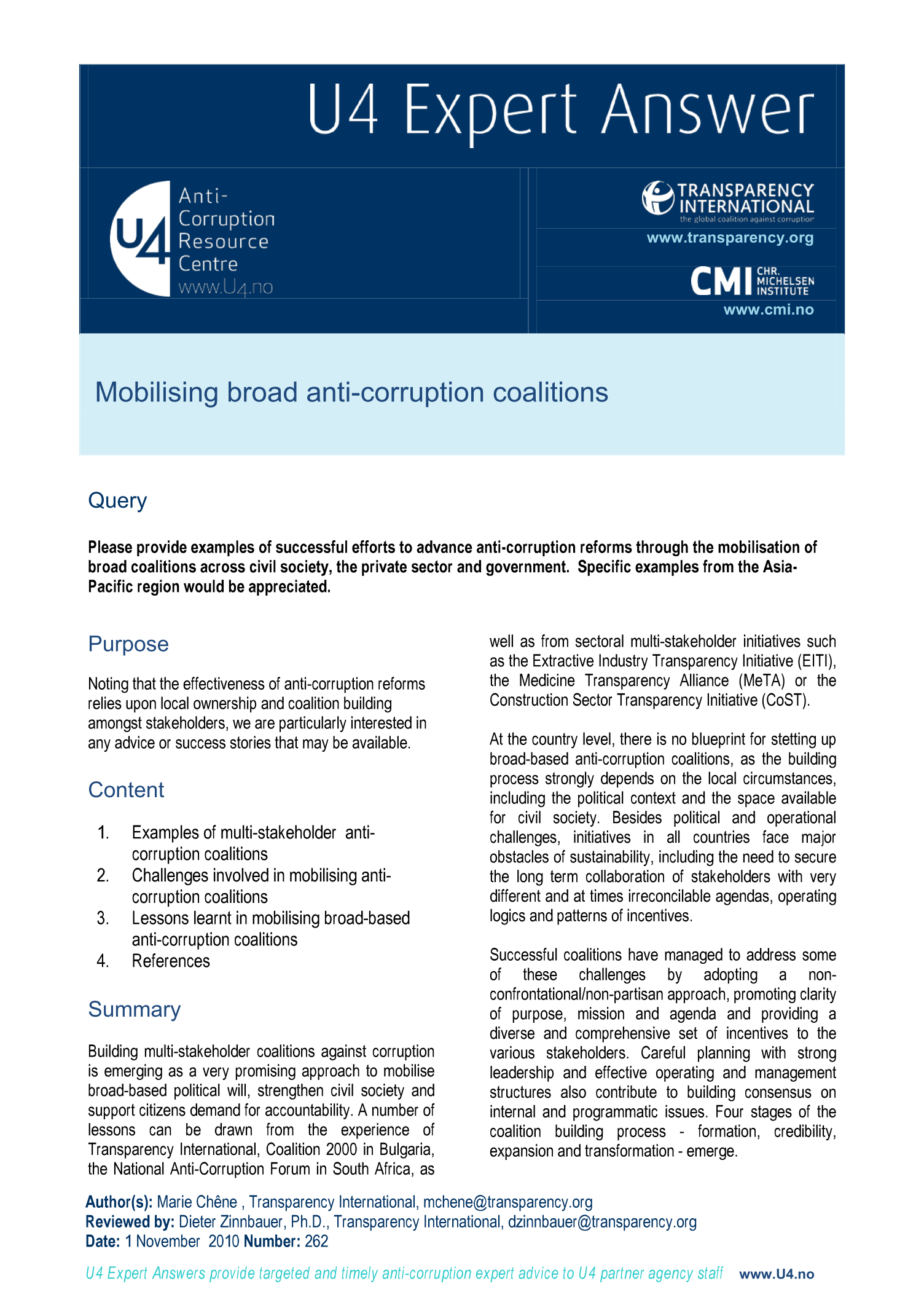U4 Helpdesk Answer
Mobilising broad anti-corruption coalitions
Building multi-stakeholder coalitions against corruption is emerging as a very promising approach to mobilise broad-based political will, strengthen civil society and support citizens demand for accountability. A number of lessons can be drawn from the experience of Transparency International, Coalition 2000 in Bulgaria, the National Anti-Corruption Forum in South Africa, as well as from sectoral multi-stakeholder initiatives such as the Extractive Industry Transparency Initiative (EITI), the Medicine Transparency Alliance (MeTA) or the Construction Sector Transparency Initiative (CoST). At the country level, there is no blueprint for stetting up broad-based anti-corruption coalitions, as the building process strongly depends on the local circumstances, including the political context and the space available for civil society. Besides political and operational challenges, initiatives in all countries face major obstacles of sustainability, including the need to secure the long term

Cite this publication
Chêne, M. (2010) Mobilising broad anti-corruption coalitions. Bergen: U4 Anti-Corruption Resource Centre, Chr. Michelsen Institute (U4 Helpdesk Answer null)
Disclaimer
All views in this text are the author(s)’, and may differ from the U4 partner agencies’ policies.
This work is licenced under a Creative Commons Attribution-NonCommercial-NoDerivatives 4.0 International licence (CC BY-NC-ND 4.0)